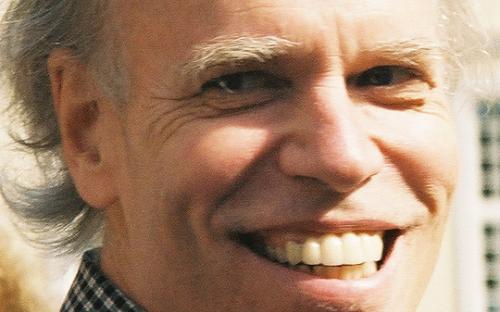The Second Annual Research Colloquium was held on Tuesday October 8, 2013. We were honored to have renowned researcher and professor, Dr. James Paul Gee, speak about
Digital Media and Learning in a Dangerous Age
According to Dr. Gee, as a country and a world we are imperiled by massive inequality and by the interactions of high risk complex systems like global warming, environmental degradation, toxic waste, the global economy, the workings of casino capitalism, global migrations of people, and ideological, civilizational, and religious wars. Drastic change is on the horizon, in part because we humans, often in the name of greed, have waited too long to deal with too many of our problems. It is time to end business as usual and to drastically rethink the role of digital media and learning in and out of schools. In this talk Dr. Gee discussed the dangers of business as usual and where we might go and what we might do in the face of transformational change.
Major points raised by Dr. Gee include the view that because current educational methods do not engage learners, we need to harness the power of digital media to attract and develop affinity groups through autonomous actions of individuals not tied to specific organizations but to those with shared interests. Knowledge will be built by developing shared meanings associated with these activities. Examples include burgeoning writers who bypass traditional publishers to write books and attract a fan base on their own, and groups that are discovering planets in galaxies beyond our universe by affiliating with others of like interests. Non-experts are becoming as good as credentialed experts in their fields. Such knowledge may exceed that produced in traditional settings. Dr. Gee referred to this activity as the Maker Movement. For more information about Dr. Gee’s work, click on the link to access one of his articles.
The colloquium had a strong attendance of faculty, students, alumni, and colleagues from both within the College of Education as well as from departments across the university. It is sponsored by Dean Michael Spagna, Michael D. Eisner College of Education, Professor Miguel Ceja, Director of the Ed.D. Program in Educational Leadership, and is a function of the Research Advisory Committee, headed by Dr. Adele Eskeles Gottfried, Director of Research Enhancement, and Professor of Educational Psychology and Counseling.
During the Q & A session Dr. Gee referred to the following authors and their works for additional reading. For the interested individuals, these are listed below:
Hattie, J., & Yates, G. (2014). Visible Learning and the Science of How We Learn. New York, NY: Routledge.
Kaufman, S. B. (2013). Ungifted: Intelligence Redefined. New York, NY: Basic Books
Tough, P. (2012). How children succeed: Grit, curiosity, and the hidden power of character. New York, NY: Houghton Mifflin Harcourt
Further Readings by James Paul Gee
Dr. James Paul Gee
Short Biographical Statement
James Paul Gee is the Mary Lou Fulton Presidential Professor of Literacy Studies at Arizona State University, and a member of the National Academy of Education. His book Sociolinguistics and Literacies (Fourth Edition 2011) was one of the founding documents in the formation of the "New Literacy Studies", an interdisciplinary field devoted to studying language, learning, and literacy in an integrated way in the full range of their cognitive, social, and cultural contexts. His book An Introduction to Discourse Analysis (Third Edition 2011) brings together his work on a methodology for studying communication in its cultural settings, an approach that has been widely influential over the last two decades. His most recent books have dealt with video games, language, and learning. What Video Games Have to Teach Us About Learning and Literacy (Second Edition 2007) argues that good video games are designed to enhance learning through effective learning principles supported by research in the Learning Sciences. Situated Language and Learning (2004) places video games within an overall theory of learning and literacy and shows how they can help us in thinking about the reform of schools. His other recent books include: Good Video Games and Good Learning: Collected Essays (2007); How to Do Discourse Analysis (2011); Woman as Gamers: The Sims and 21st Century Learning (2010) and Language and Learning in the Digital World (2011), both written with Elizabeth Hayes. The Anti-Education ERA: Creating Smarter Students through Digital Media appeared in 2013. Prof. Gee has published widely in journals in linguistics, psychology, the social sciences, and education.











